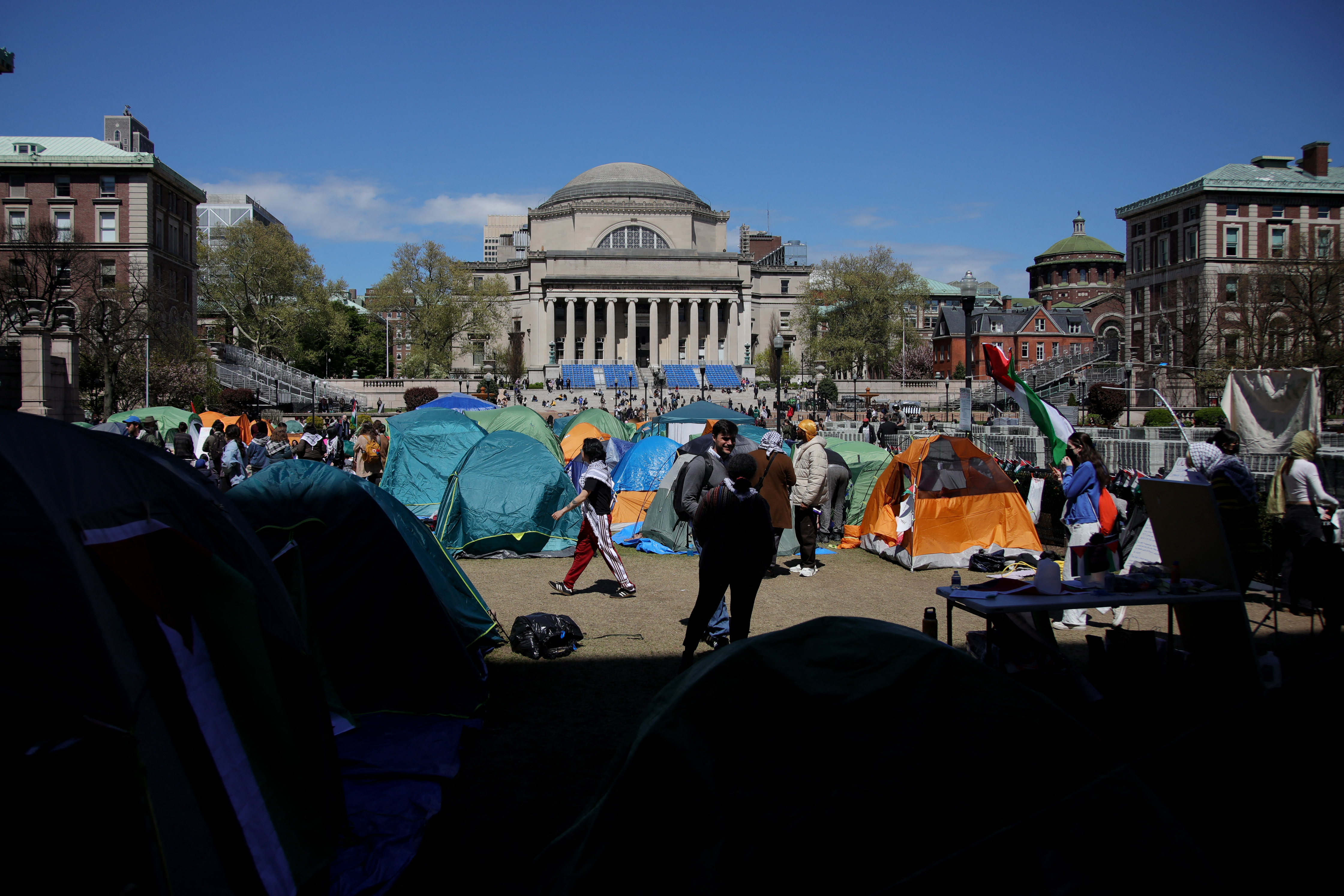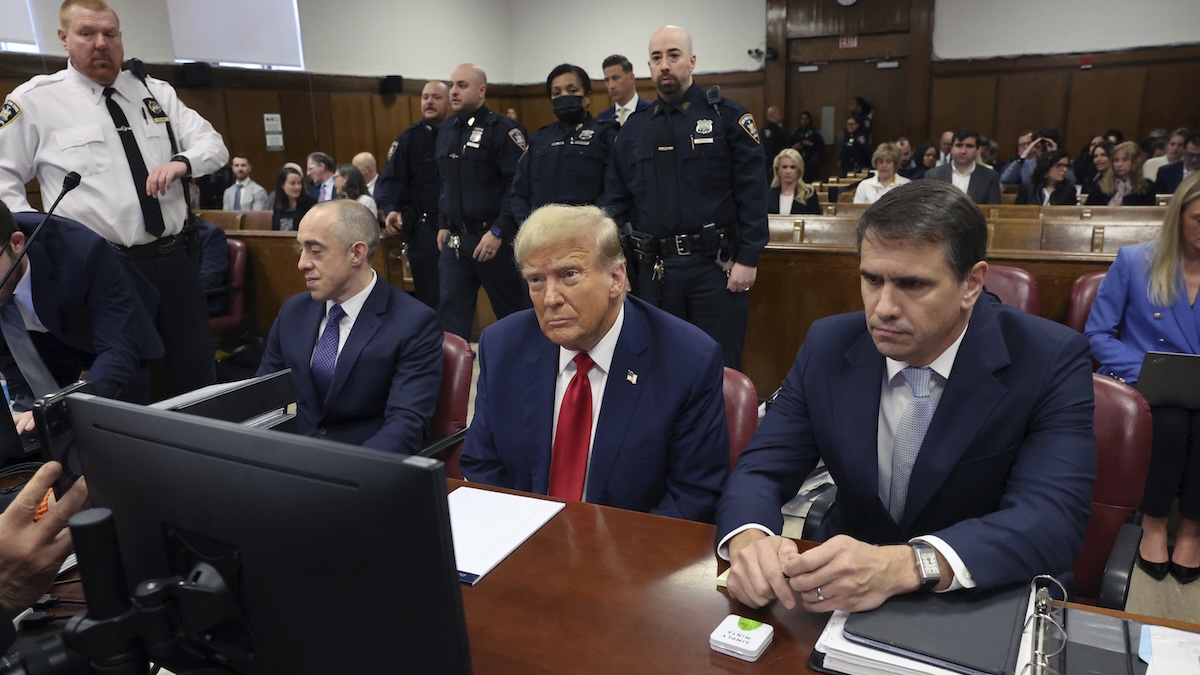A federal freeze on most evictions enacted last year is scheduled to expire Saturday, after President Joe Biden’s administration extended the original date by a month. The moratorium, put in place by the U.S. Centers for Disease Control and Prevention in September, was the only tool keeping millions of tenants in their homes. Many of them lost jobs during the coronavirus pandemic and had fallen months behind on their rent.
Landlords successfully challenged the order in court, arguing they also had bills to pay. They pointed out that tenants could access nearly $47 billion in federal money set aside to help pay rents and related expenses.
Advocates for tenants said the distribution of the money had been slow and that more time was needed to distribute it and repay landlords. Without an extension, they feared a spike in evictions and lawsuits seeking to boot out tenants who were behind on their rents.
Even with the delay, roughly 3.6 million people in the U.S. as of July 5 said they face eviction in the next two months, according to the U.S. Census Bureau’s Household Pulse Survey.
Get Tri-state area news and weather forecasts to your inbox. Sign up for NBC New York newsletters.
That includes about 170,000 people in New York alone.
The survey measures the social and economic effects of the coronavirus pandemic every two weeks through online responses from a representative sample of U.S. households.
Here’s the situation in New York and New Jersey:
News
New York
WHAT’S THE STATUS OF EVICTION MORATORIUMS IN THE STATE?
New York state law protects tenants from evictions — but only if they submit paperwork to the state stating they had a financial hit during the pandemic.
That state law expires at the end of August. But tenants who apply for rental assistance will still have protection from eviction if their landlords take them to court, even if tenants don’t hear back from the state before the law expires.
WHAT’S BEING DONE TO HELP PEOPLE FACING EVICTION?
This year, the state set up a $2 billion fund to provide up to 12 months of past-due rent and utility bills to eligible households who are at or below 80% of area median income. New Yorkers that spend 30% or more of their monthly income on rent can also receive up to three months of extra rental aid.
Payments go directly to landlords, who must agree to waive late fees due on past-due rent and to not increase monthly rent or evict tenants in most scenarios.
New York launched the fund through the state budget passed April 7 — but it didn’t release the rental relief application until June 1.
Legal Aid Society staff attorney Ellen Davidson said lawmakers eased paperwork requirements that slowed rental relief last year.
But New York was the last state to release new rental relief aid this year, according to U.S. Treasury data provided to The Associated Press.
Dozens of landlords, tenants, and housing advocates have told AP the state's website has been plagued by glitches and poor customer service. Lawmakers have launched hearings into the program.
The state told AP it expects to take four to six weeks to process completed applications; it’s received over 160,000 so far.
New York processed $2.7 million in aid as of July 29, but lawmakers say that's far too little.
Gov. Andrew Cuomo this week announced he’s “streamlining” the application process and adding 350 state workers to help. But Community Housing Improvement Program Executive Director Jay Martin said it's unclear whether Cuomo actually changed the application process.
Cuomo's administration hasn't provided AP with details about how many households have received payments or denials.
HOW ARE THE COURTS HANDLING EVICTION HEARINGS?
New York landlords have been able to bring lawsuits over evictions since last summer. But Davidson said existing state protections are preventing a flood of evictions.
As the moratorium expiration nears, Martin said the state should provide courts with a list of tenants awaiting rental relief, rather than force landlords to take tenants to court.
HOW AFFORDABLE IS HOUSING IN THE STATE’S MAJOR RENTAL MARKETS?
New York City is often viewed as one of the nation’s costliest and most competitive housing markets. As of June, the median monthly rent in the New York City metropolitan area was down 2% over the last year to $2,450, according to a report released June 16 by Realtor.com. Median rents for a two-bedroom apartment were at $2,775, up 3.7%. Meanwhile, rent for studios was down 14% to $2,095.
ARE EVICTIONS EXPECTED TO CREATE A SURGE IN HOMELESSNESS?
Davidson said state protections should prevent a surge in homelessness.
Senate housing committee chair Brian Kavanagh, a Democrat, said he’s committed to keeping the moratorium in place "as long as needed to protect the public" given rental relief's glacial pace.
But Martin said his group, representing 4,000 property owners, would fight that “tooth and nail.” He said an extension would push more debt onto tenants and landlords seeking the maximum months of aid.
“The only way to actually help people is to actually get them the relief,” Martin said.
More than one in five New York households are behind on rent, according to left-leaning Center on Budget and Policy Priorities.
New Jersey
WHAT’S THE STATUS OF EVICTION MORATORIUMS IN THE STATE?
New Jersey is one of several states that enacted a moratorium last year halting eviction proceedings. New Jersey's moratorium will remain in place until Jan. 1, 2022, at the latest because of a bill Democratic Gov. Phil Murphy signed into law. The moratorium doesn't affect when rent is due, and tenants still owe the rent.
WHAT’S BEING DONE TO HELP PEOPLE FACING EVICTION?
The state is providing $353 million in rental assistance to low- and moderate-income households experiencing a substantial reduction in income. The state has also gotten notice from the federal government that another $272 million under the American Rescue Plan will apply to rental assistance. The application period will remain open until all funding has been awarded, according to the Department of Community Affairs, and landlords can apply on behalf of tenants, with the tenant’s permission.
The state also launched the Expanded Access to Counsel and Homelessness Diversion Anti-Eviction Pilot this summer to offer legal and safety-net services to low-income households facing eviction.
The state has also been notified by the federal government that it will be awarded nearly 1,000 vouchers for emergency housing assistance to help homeless people. That's in addition to 12 months of federal rental assistance to about 1,500 households facing homelessness.
Beyond that, the Democrat-led Legislature passed a budget appropriating $500 million in federal funds to help renters pay rent.
HOW ARE THE COURTS HANDLING EVICTION HEARINGS?
Landlord-tenant trials are on hold, likely until September. The state Supreme Court said in July that landlord-tenant settlement conferences could resume. If no settlement is reached, trials could begin Sept. 1.
Under the state Supreme Court’s July 14 order last year, evictions could only occur in emergencies and couldn't be based on failing to pay rent. Trials could only be held in the event of the death of a tenant or if the court determines that an emergency exists, such as documented violence, criminal activity, or other health and safety concerns, according to the state courts.
HOW AFFORDABLE IS HOUSING IN THE STATE’S MAJOR RENTAL MARKETS?
The metro New York region is considered among the priciest in the country. As of June, the median monthly rent in the New York-Newark-Jersey City area fell by 2% over the last year to $2,450, according to a report released July 15 by Realtor.com. Median rents for a two-bedroom apartment rose 3.7% to $2,775 in the northern New Jersey area, and 3.2% to $1,800 in the Philadelphia-Camden area.
ARE EVICTIONS EXPECTED TO CREATE A SURGE IN HOMELESSNESS?
It’s hard to say how much homelessness will increase in New Jersey. The U.S. census estimates that out of about 232,000 renters in the state, about 78,000 are considered “very likely” to leave their homes because of evictions in the next two months. New Jersey conducted a “point-in-time” count of homeless people in January, but the data is not yet available, according to the state Community Affairs Department.



